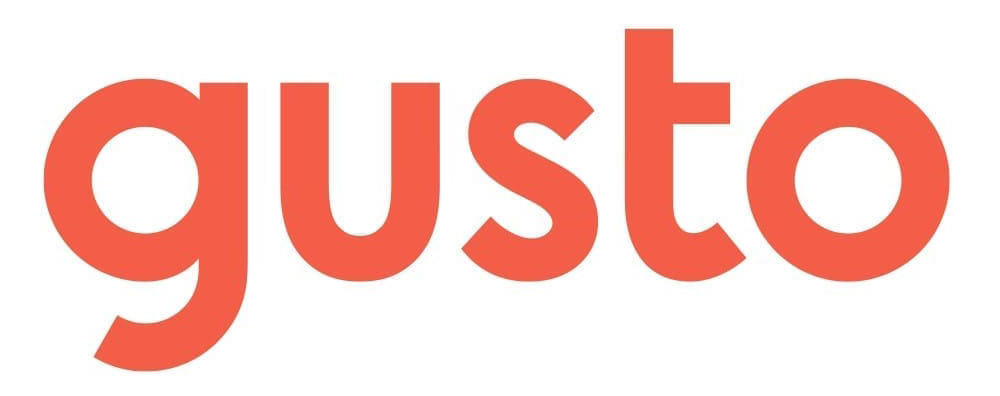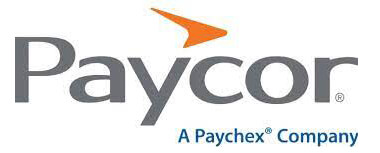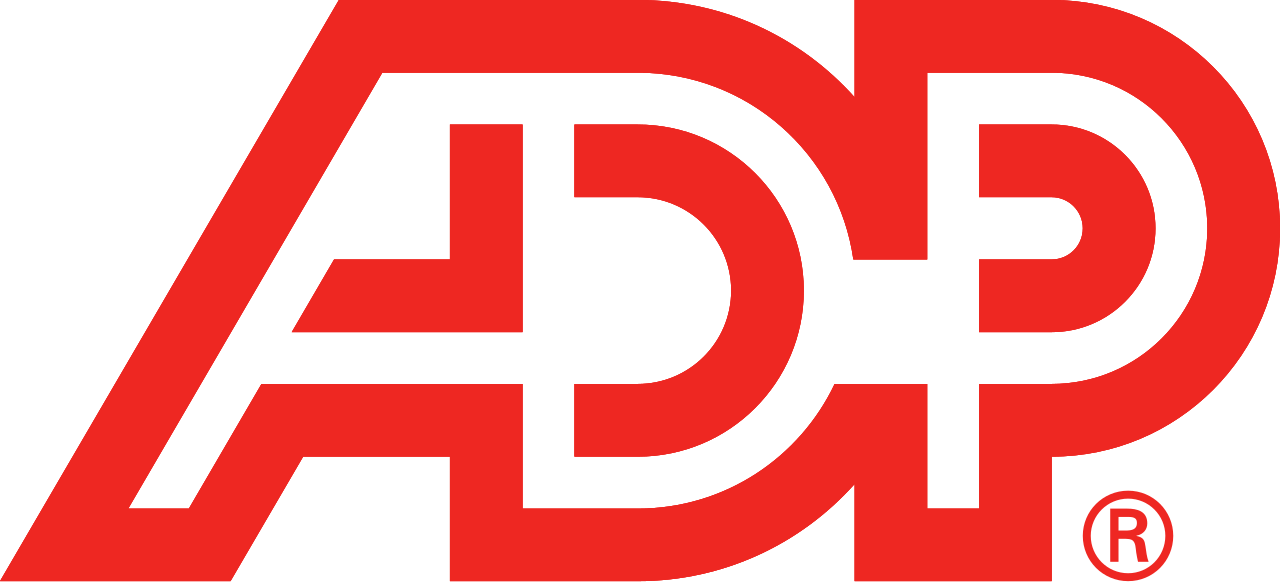Looking for the best HRIS for small businesses in 2025 without sitting through sales calls? Start here. In a few minutes you’ll see which platforms can run accurate payroll on day one, map time rules to how you actually pay people, and publish pricing you can sanity-check before you commit. Below, you’ll get a skim-friendly comparison table, plain-English mini reviews, and quick use-case picks (first payroll, multi-state, hourly, global contractors) so you can shortlist with confidence. Verify multi-state gates, add-on fees, and support hours – and once you’ve picked a contender, run one parallel payroll to confirm taxes, net pay, and GL mapping. No fluff, just the choices that help owners move faster.
Quick Summary – Best HRIS for Small Businesses
If you’re in the 1–200 employee range, the best HRIS choices keep payroll and time tracking simple, support multi-state compliance, and won’t bury you in add-ons. Below are our quick picks, each one balances usability, breadth of features, and real SMB-friendly pricing so you can get compliant fast and keep admin work low.
Comparison Table.
(Use this table to scan coverage, modules, pricing style, and any gotchas before you shortlist)
| Rank & Vendor | Best fit (1–200 emp) | Compliance & payroll coverage | Typical SMB pricing* | Setup & support |
|---|---|---|---|---|
| Rippling | Fast-scaling teams wanting modular HR + IT | Full-service payroll & filings across all 50 states | From $8 PEPM core; payroll is modular (quote-based; commonly added) | Fast setup; chat → callback; strong docs |
| Gusto | Small teams prioritizing simple, compliant payroll | 50 states (multi-state on higher tiers) | Simple $49 base + $6 PEPM; Plus/Premium higher | Very fast; chat/callback (business hours) |
| BambooHR | HR-first orgs needing ATS + Performance | US payroll with multi-state tax handling | From $10 PEPM (≤25 emp often flat ~$250/mo); add-ons vary | Moderate setup; phone/email support |
| Paycor | SMBs wanting all-in-one HCM bundles | US payroll with tax filing | Recent SMB bundles seen ~$159 base + $9 PEPM | Moderate; phone + chat; extended hours |
| Zoho People (+ Zoho Payroll) | Budget teams in the Zoho ecosystem | US payroll (multi-state on specific plans) | HR from $1.50–$5 PEPM; Zoho Payroll extra (US) | Fast self-serve; email/chat (tiered) |
| Homebase | Hourly/shift teams (retail, F&B, services) | 50 states payroll add-on | Payroll $39 base + $6 PEPM (add-on to scheduling) | Very fast; daily live support |
Why these picks fit small businesses (1–200 employees)
- Fast setup + strong payroll compliance:
Gusto and Rippling both run compliant payroll across all 50 states, with multi-state support and automatic filings (multi-state on Gusto Plus/Premium). That’s crucial as you hire across borders. - Right-sized feature depth:
BambooHR and Paycor add deeper ATS/performance without overwhelming smaller teams; both are recognized for SMB/mid-market usability. - Budget-friendly options:
Zoho People offers transparent, low per-user pricing with broad HR features, and its Zoho Payroll USA now supports all states (multi-state on Pro), good for lean budgets. Homebase keeps costs low for hourly teams while nailing scheduling, time clocks, and simple payroll. - Ecosystem + API flexibility:
Rippling (600+ integrations), BambooHR (open API), and Zoho (suite + API) minimize manual work as you connect accounting, time, and recruiting stacks. - Security that passes audits:
SOC 2 (Type II) is standard across this list, with ISO 27001 in several cases (Rippling, Zoho). That matters for vendor due diligence even at small headcount.
Why this order (quick takeaways)
- #1 Rippling – Best overall for scaling: broad modules (HR + IT), robust multi-state payroll; pricing is modular so you only add what you need early.
- #2 Gusto – Best for simplicity & fast compliance: super clear payroll + filings in 50 states; budget-friendly Simple tier for small headcount.
- #3 BambooHR – Best for HR depth: clean core HR with ATS + Performance; payroll works, but many features are add-ons.
- #4 Paycor – Best all-in-one HCM bundles: strong breadth; pricing can be opaque.
- #5 Zoho People – Best budget HR suite (add Zoho Payroll for US pay): extremely low PEPM; check plan for multi-state payroll.
- #6 Homebase – Best for hourly/shift teams: excellent scheduling/time; payroll is affordable add-on and 50-state ready.
Mini Reviews: Which HRIS Fits Your Small Business Best?
If you’re choosing the best HRIS for small businesses, focus on what you’ll feel in week one: payroll compliance (single- vs multi-state), the modules you actually need (time, benefits, performance), pricing clarity, and how quickly support helps you go live. Below, we break down each pick with strengths, watch-outs, pricing visibility, and the ideal fit for 1–200 employees.
1. Rippling (best overall for most SMBs)

Rippling combines HR, payroll, and even IT (device/app management) in one platform, which cuts down on swivel-chair admin as you grow. It’s also strong for multi-state compliance.
- Strengths: Unified HR + IT + Finance platform; deep automation; strong multi-state payroll capabilities.
- Watch-outs: Modular pricing means costs can stack as you add products (payroll, benefits, IT, etc.).
- Pricing visibility: Core platform from $8 PEPM; Payroll shows as an add-on (recent Rippling post cites $35 per user/month). Exact quotes vary by bundle.
- Security notes: SOC 2 Type II and ISO 27001/27018 listed on Rippling’s security page.
- Ideal fit: Fast-scaling teams that want one system to run HR + payroll now and add IT/finance workflows later.
2. Gusto (best value/payroll-first)

Gusto is the cleanest entry point if payroll is the main job to be done today, with transparent plan names and add-ons you can layer in. Multi-state coverage is available, on specific tiers.
- Strengths: Simple, compliant payroll; clear tiers; fast setup.
- Watch-outs: Multi-state payroll lives on Plus/Premium (not Simple). Some HR features (e.g., performance) can be add-ons on lower tiers.
- Pricing visibility (Nov 2025 site): Simple $49 base + $6 PEPM; Plus $80 + $12; Premium $180 + $22.
- Ideal fit: Owners who want fast, accurate payroll now and can upgrade to HR/time tools as complexity grows.
3. BambooHR (best HR-first ease of use)

BambooHR shines as an HR-first system with clean employee records and approachable workflows, plus native ATS and Performance options for growing teams. Payroll is US-only and sold as an add-on.
- Strengths: Intuitive HR database; ATS + Performance; broad marketplace.
- Watch-outs: Payroll and Time Tracking are add-ons; payroll scope is US-only. Expect to manage integrations and add-on costs.
- Pricing visibility: Public page lists from $10 PEPM and a flat $250/mo for ≤25 employees (modules impact final quote).
- Ideal fit: Teams that want an easy HR system first, then layer payroll/time later without overwhelming the org.
4. Paycor (best configurable payroll & compliance)

Paycor offers robust payroll with compliance alerts and a reporting/analytics layer that’s deeper than typical SMB tools. Note the ownership change: Paycor is now a Paychex company (closed April 14, 2025).
- Strengths: Multi-jurisdiction tax handling and proactive compliance dashboard; strong analytics.
- Watch-outs: Pricing is quote-based (site routes SMBs to a custom quote), so budget comparisons require sales conversations.
- Context: Acquisition by Paychex completed Apr 14, 2025, watch roadmap/integration updates if you buy during transition.
- Ideal fit: Multi-state SMBs that want more configurability, alerting, and reporting than lightweight payroll apps provide.
5. Zoho People (best budget suite/ecosystem)

Zoho People is the budget-friendly HR hub in the larger Zoho suite. You’ll often add Zoho Payroll (US) for pay runs and Zoho Recruit for ATS, which keeps costs predictable for lean teams.
- Strengths: Low PEPM across tiers; tight suite integrations; flexible workflows.
- Watch-outs: US payroll is a separate product; multi-state payroll requires the Professional plan of Zoho Payroll.
- Pricing visibility: Zoho People commonly listed from $1.50–$5 PEPM (annual billing) on third-party pricing summaries; Zoho Payroll US shows Standard $29 org/mo + $6 PEPM (single-state) and Professional $59 org/mo + $8.50 PEPM (multi-state).
- Ideal fit: Budget-minded teams already using Zoho (Books, CRM, etc.) who want HR basics plus add-on payroll when needed.
6. Homebase (best for hourly scheduling/time)

Homebase is built for hourly teams first: free time clocks, scheduling, and labor-law friendly controls, then add native payroll when you’re ready. Payroll is available nationwide with straightforward pricing.
- Strengths: Excellent time clocks & scheduling; mobile-friendly; payroll that pulls hours/tips straight from timesheets. Nationwide availability.
- Watch-outs: Not a full HCM, HR breadth is lighter than Rippling/Paycor/BambooHR; complex talent/benefits needs may require other tools.
- Pricing visibility: Payroll commonly shown as $39 base + $6 PEPM, with unlimited runs.
- Ideal fit: Restaurants, retail, and services with shift-based work that need compliant timekeeping and simple payroll in one place.
Notes: These mini-reviews focus on what matters most at 1–200 employees: payroll scope (single- vs multi-state), day-one modules (time, benefits, performance), pricing visibility, and how configurable reporting/compliance is. Our full scoring (not shown here) also considers integrations/API depth, mobile UX, support SLAs, and security attestations.
Other HRIS Worth Shortlisting
Beyond our main winners, these platforms are heavy-hitters for specific needs, classic small-business payroll, deep workforce management, and global hiring/EOR. If your priorities skew toward hand-holding support, advanced time rules, or international contractors, start here.
7. ADP Run (best “classic” small-business payroll backbone)

ADP Run is the tried-and-true payroll workhorse, with tiered packages (Essential, Enhanced, Complete, HR Pro) and nationwide multi-jurisdiction payroll filings. It’s built for owners who want something proven and expandable.
- Strengths: Mature payroll engine, multi-state support, and a large integration marketplace; enterprise-grade security (SOC reports/ISO 27001).
- Watch-outs: Much of HR/time/benefits comes via add-ons; pricing is quote-based (promos like “3 months free” appear periodically).
- Pricing visibility: No public list rates; third-party trackers show ranges and per-employee fees, but your quote will vary.
- Ideal fit: Owners who want a stable payroll backbone with room to add HR pieces as needs grow.
8. Paychex Flex (best hands-on payroll support)

Paychex Flex leans into service + software with live help and 24/7/365 availability, great if you’d rather not DIY payroll tasks.
- Strengths: Full-service payroll/taxes, flexible packages, and true round-the-clock support.
- Watch-outs: Feature bundles and add-ons can complicate apples-to-apples pricing.
- Pricing visibility: Public references commonly cite ~$39 base + $5 PEPM for entry tiers; confirm current offers with sales.
- Ideal fit: Teams that want hands-on help and guided setup more than a minimalist, self-serve app.
9. UKG Ready (best WFM/time depth for SMBs)

UKG Ready (Kronos) is a workforce management-first suite (time, scheduling, and payroll under one roof) with a strong SMB footprint. If you juggle shifts, overtime, job costing, or compliance rules, it’s a top contender.
- Strengths: Robust time & attendance and scheduling built for complex rules; mobile app for on-the-go punches and approvals.
- Watch-outs: Broader HR can feel secondary vs. WFM; pricing is quote-based and varies by modules/user count.
- Pricing visibility: Reviewers report wide ranges; treat online price quotes as directional only.
- Ideal fit: SMBs with complex time and scheduling needs who want deep WFM plus payroll in one stack.
10. Deel (best global contractors/EOR path)

For distributed teams, Deel centralizes contractors, global payroll, and EOR across 150+ countries with clear public starting prices.
- Strengths: One platform for contractors and EOR, with public starter rates – Contractors from $49, Global Payroll from $29, EOR from $599.
- Watch-outs: Costs add up vs. domestic-only tools; ensure EOR is necessary before committing.
- Pricing visibility: Live pricing page with plan minimums; promos and region specifics can apply.
- Ideal fit: US SMBs paying global contractors today and planning an EOR footprint as they expand.
11. Factorial (best modern HR UX for growing SMBs)

Factorial emphasizes a clean HR UX with built-in performance/OKR tooling, and budget-friendly entry pricing. Payroll often connects via integrations depending on region.
- Strengths: Modern interface, OKRs and performance reviews, growing integrations (QuickBooks, marketplace/Zapier).
- Watch-outs: Payroll may rely on integrations in the US; validate native coverage vs. syncing to your payroll system.
- Pricing visibility: Starts at $8 PEPM for core HR, with modular add-ons.
- Ideal fit: SMBs wanting modern HR + performance at low PEPM, comfortable pairing with an external payroll if needed.
12. OnPay (best simple, affordable payroll + HR)

OnPay keeps pricing plain and coverage broad: full-service, multi-state payroll with HR basics, unlimited runs, and year-end forms included.
- Strengths: Transparent price, multi-state included, no surprise fees, solid support channels.
- Watch-outs: Lighter HR suite vs. all-in-ones; limited talent/performance tools. (Scope inferred from plan inclusions.)
- Pricing visibility: $49 base + $6 PEPM, confirmed on the vendor page; third-party listings match.
- Ideal fit: Owners who want affordable, no-drama payroll plus essentials, not an HCM overhaul.
13. TriNet Zenefits (best benefits-led HRIS for lean teams)

Now under TriNet, the (Zenefits) HR platform remains a benefits-led HRIS with payroll as an add-on and clear tiering in many public references.
- Strengths: Benefits administration with HR automation and a straightforward tier structure commonly cited by reviewers.
- Watch-outs: Pricing can differ by billing term and adds for payroll; confirm with TriNet, as official pages steer to quotes.
- Pricing visibility: Many current reviews list Essentials ~$8–$10 PEPM, Growth ~$16–$20, Zen ~$27–$33; verify latest with sales.
- Ideal fit: Lean teams that want HR + benefits first, with payroll available once headcount or complexity increases.
Notes: This section stays focused on fit, support model, WFM depth, and pricing visibility. Our full scoring (not all shown here) also evaluates: time & attendance detail, benefits administration, talent/ATS & performance, integrations/API, mobile UX, security attestations (SOC/ISO), implementation effort, and legal/compliance tooling. Some vendors publish list prices; others are quote-only (always confirm current tiers, multi-state limits, and add-on costs with the provider before buying).
Methodology – How We Score & Rank HRIS for Small Businesses
We keep our framework simple and owner-focused. The goal is to surface tools that a 1–200 person company can deploy quickly, affordably, and compliantly. Every rating ties back to real-day-one impact, payroll accuracy, time/WFM coverage, and whether pricing is clear before you talk to sales. This keeps our picks aligned with what readers of a best HRIS for small businesses guide actually need.
Sources Used
We triangulate from four evidence streams to stay current and practical:
- Editorial hands-on tests: Trial/sandbox runs that cover first payroll, multi-state setup, onboarding, time approvals, and basic benefits mapping.
- 2025 buyer guides & review grids: Analyst and marketplace grids (e.g., SMB-focused comparisons) to validate breadth, momentum, and common pain points from verified reviewers.
- Vendor documentation: Public pricing pages, plan matrices, security/compliance pages (SOC/ISO), integration directories, release notes/change logs.
- Owner feedback loops: Interviews and comments from real SMB operators (1–200 employees) across industries (restaurants/retail, agencies, SaaS, trades) used to weight usability and support.
Weighted Criteria
We convert findings into a weighted score (100-point scale). Higher weights reflect what most small teams feel in week one, getting people paid correctly and staying compliant.
The table below explains what we measure and why it matters.
| Criterion | Weight | What we measure (summary) | Why it matters to SMBs |
|---|---|---|---|
| Price transparency | 12% | Public list pricing, clarity on PEPM/base fees, add-on gates (e.g., multi-state, performance). | Prevents surprise bills; speeds buy-in. |
| Payroll depth | 22% | Single vs multi-state payroll, filings, amendments, contractor support, garnishments. | Core compliance and accuracy. |
| WFM / Time | 15% | Time clocks, scheduling, overtime rules, job costing, approvals, PTO. | Controls labor cost and risk. |
| Benefits admin | 8% | Medical/dental/vision setup, broker support, eligibility, open enrollment UX. | Keeps plans organized as headcount grows. |
| Integrations / API | 9% | Native connectors (accounting, ATS, POS), API depth, webhooks. | Reduces manual work and errors. |
| Analytics / Reporting | 6% | Payroll/tax reports, headcount, labor cost, custom fields/filters. | Decision support for owners and finance. |
| Security / Compliance | 10% | SOC 2/ISO attestations, SSO/MFA, audit trails, data retention. | Vendor diligence and data safety. |
| Support quality | 10% | Channels/hours, setup guidance, responsiveness, knowledge base. | Determines go-live speed and resilience. |
| Real SMB reviews | 8% | Volume/recency of verified reviews; consistency of themes. | Cross-checks marketing with reality. |
Update Cadence & How to Report Changes
To reflect a fast-moving market, we maintain a living scoring model:
- Cadence: Full audit on a regular cycle, with interim refreshes when vendors change list pricing, add modules (e.g., performance, multi-state), or shift support hours.
- Verification workflow: We prioritize public artifacts (pricing pages, plan matrices, security docs, release notes) and confirm deltas inside trial/sandbox where possible.
- Change reports: Vendors and readers can flag updates (pricing/features) with links or release notes. We review the evidence, replicate in-product when feasible, and adjust the score with a dated changelog entry.
- Bias guardrails: We keep affiliate or commercial factors outside the scoring math; weights and definitions remain stable so readers can compare year over year.
Choose by Use Case (Pick Your Situation)
Match the tool to the job. Instead of chasing every feature, start with the outcome you need in the next 90 days: first payroll, multi-state compliance, hourly scheduling, or global contractors. Below are fast, practical picks for common small-business scenarios (1–200 employees), with primary and backup choices plus quick reasons.
Under 20 Employees, First Payroll Cycle
Primary: Gusto
Backups: OnPay; Rippling (if you expect fast growth)
- Why Gusto: Clear pricing, guided setup, and compliant filings out of the box, ideal when you just need people paid correctly, fast.
- When to choose OnPay: You want transparent, budget-friendly payroll with HR essentials and unlimited runs.
- When to pick Rippling: You’re tiny now but plan to add IT/advanced automation soon; modular add-ons won’t box you in.
- Heads-up: Multi-state payroll may sit on higher Gusto tiers; confirm before you run that second state.
Hourly/Shift-heavy Retail & Restaurants
Primary: Homebase
Backups: UKG Ready (deeper WFM); Paychex Flex (hands-on support)
- Why Homebase: Best-in-class time clocks and scheduling that flow into payroll, plus labor-law friendly controls.
- When to choose UKG Ready: You need granular rules (overtime, job costing, union, complex schedules).
- When to pick Paychex Flex: You want 24/7 help to set up and maintain payroll for high-turnover teams.
- Heads-up: Homebase is lighter on HR/people ops; add performance/benefits elsewhere if needed.
Multi-state Compliance and Growth
Primary: Rippling
Backups: Paycor; ADP Run (classic alternative)
- Why Rippling: Robust multi-state payroll, automated onboarding/offboarding, and scalable modules as you expand.
- When to choose Paycor: You want configurable payroll, alerts, and strong reporting without going enterprise.
- When to pick ADP Run: You value the stability and breadth of the ADP ecosystem as you add states.
- Heads-up: Watch add-on pricing as you layer benefits, performance, and time.
Global Contractors/EOR Bridge
Primary: Deel
Backups: Rippling (global payroll/EOR modules); Paycor (domestic now, plan for global later via partners)
- Why Deel: Clean path for paying contractors today and upgrading to EOR when you hire abroad.
- When to choose Rippling: You prefer one hub for US HR + IT with optional global payroll/EOR as coverage meets your country list.
- When to pick Paycor + partner: You’re primarily US-focused but want the option to add vetted globals later.
- Heads-up: EOR pricing is higher than contractor payroll, confirm country coverage and entity needs.
IT + HR Automation Needs
Primary: Rippling
Backups: BambooHR (HR-first + add-ons); Factorial (modern UX + OKRs)
- Why Rippling: HR + device/app provisioning in one stack removes manual work and offboarding risk.
- When to choose BambooHR: You want approachable HR with ATS/performance and are fine adding payroll/time.
- When to pick Factorial: You care most about a modern UI and built-in performance/OKRs for lean teams.
- Heads-up: Deep IT workflows live firmly in Rippling; others rely more on integrations.
Benefits-centric Teams
Primary: TriNet Zenefits
Backups: Gusto; ADP Run (via broker ecosystem)
- Why TriNet Zenefits: Benefits administration is front and center with HR automation layered in.
- When to choose Gusto: You want straightforward benefits setup alongside simple payroll.
- When to pick ADP Run: You need access to a wide broker network or complex benefits structures.
- Heads-up: Payroll modules or multi-state may require specific tiers, check plan gates.
QuickBooks/Xero-centric Shops
Primary: Gusto
Backups: OnPay; Rippling
- Why Gusto: Smooth GL sync for QuickBooks and Xero, easy mapping, and reliable classifications.
- When to choose OnPay: You want simple, affordable payroll with clean accounting exports.
- When to pick Rippling: You’ll outgrow basic GL sync and want broader automation and finance workflows.
- Heads-up: Validate class/location/job-cost mapping and how corrections flow back to your ledger.
Pricing Guide for Small Businesses
Before you choose the best HRIS for small businesses, get clear on how vendors bill. Most SMB shock comes from add-ons (multi-state, year-end filings, benefits), not the headline price. Here’s the quick decoder.
Common models (PEPM + base; payroll tiers; per-run fees)
Pricing looks simple until you see how vendors structure it. Use this quick primer to ballpark your total cost before a demo and compare apples to apples.
- PEPM + base fee (most common): A flat monthly base plus per-employee per-month (PEPM) charge. Example patterns on public pages: Gusto (base + PEPM), OnPay (base + PEPM), Homebase Payroll (base + PEPM), Rippling (modular PEPM), Zoho Payroll (org + PEPM).
- Tiered payroll (feature gates): Multi-state payroll, time tracking, and performance tools often sit on higher tiers (e.g., Gusto Plus/Premium; Zoho Payroll Professional for multi-state).
- Per-run / off-cycle fees: Some providers still charge per run or for off-cycle/bonus runs; others include unlimited runs (e.g., OnPay, Homebase). Always verify what “unlimited” covers.
Typical SMB ranges; public vs. “contact sales” pricing
Use these public snapshots as guardrails (not guarantees). Quote-only vendors (ADP, Paychex, parts of Paycor) vary by bundle, state count, and add-ons.
| Example (public pages) | Snapshot | Notes |
|---|---|---|
| Gusto | $49 base + $6 PEPM (Simple) | Higher tiers add multi-state/time/performance. |
| OnPay | $49 base + $6 PEPM | W-2s/1099s + year-end filings + unlimited runs included. |
| Homebase Payroll | $39 base + $6 PEPM | Unlimited runs; strong for hourly teams. |
| Rippling (HR core) | From $8 PEPM (modular) | Add payroll/benefits/IT as needed. |
| BambooHR | ≤25 emp: $250/mo flat; >25: PEPM | Payroll/time are add-ons (US-only payroll). |
| Zoho Payroll (US) | Standard/Professional: org fee + PEPM | Professional adds multi-state payroll. |
| ADP RUN / Paychex Flex / Paycor | “Contact sales” | Quote-based; promos common; hard to compare apples-to-apples. |
Takeaway: Expect base fees in the $39–$80+ range and PEPM in the $5–$15+ range for payroll-first tools, with HR suites ranging from ~$1.50–$10 PEPM for HR-only modules (payroll extra). Real totals hinge on states, add-ons, and promos. (Ranges inferred from the snapshots above.)
Hidden costs (filings, benefits admin, implementation, support tiers)
Headline prices rarely tell the whole story. Scan these common add-ons so you can lock an all-in quote and avoid “surprise” invoices after signup.
- Multi-state gates & extra PEPM: Multi-state often requires a higher tier (e.g., Gusto Plus/Premium; Zoho Payroll Professional).
- Year-end filings (W-2/1099): Some include it (OnPay); others may bill separately (always confirm).
- Benefits administration: May be an add-on or require using the vendor’s brokerage; check per-enrollee or broker-of-record rules. (Varies by vendor; review plan pages.)
- Implementation & training: More common with quote-based suites (Paycor/ADP/Paychex); ask for one-time fees in writing.
- Premium support tiers: 24/7 or named rep support can sit behind higher plans, verify hours/SLAs up front.
Implementation Checklist (SMB-Fast)
Launch in 2–4 weeks by front-loading data prep and running one parallel payroll before go-live. This keeps surprises out of your first live run.
Data prep; pay schedules; time rules; benefits setup
- People data: Export clean CSVs (legal name, SSN/TIN, email, DOB, address, work location, hire dates, comp, exemptions).
- Pay schedules: Choose cadence (weekly/bi-weekly/semimonthly), pay dates, and a consistent close date for hours.
- Time rules: Define time-off types, overtime rules, breaks, shift differentials, job costing, and approval flow.
- Benefits: Gather plan docs, eligibility rules (waiting periods, classes), deduction codes, and carrier/broker contacts.
- Taxes & IDs: Verify federal EIN and state unemployment & withholding accounts for each state you pay in.
Connect accounting/banks/SSO; parallel payroll; go-live plan
Launches succeed when money movement, the ledger, and access are wired up first. Dry-run one full payroll in parallel, then flip the switch with a clear cutover plan.
- Banking: Add payroll bank account(s), micro-deposit verification, positive pay (if used).
- Accounting: Map chart of accounts, class/location/job tags; test a journal export to QuickBooks/Xero.
- SSO & MFA: Turn on SSO (if supported) and require MFA for admins.
- Integrations: Connect time clocks/POS/ATS before parallel testing.
- Parallel payroll (1 cycle): Run one “shadow” payroll in the new system and compare net pay, taxes, GL against your current system.
- Go-live: Lock the cutover date, freeze master data 48 hours prior, and prepare a rollback plan (manual checks if needed).
Admin training + employee comms
A tiny playbook beats guesswork. Give admins and employees clear steps and dates so your first two pay cycles run clean, no last-minute tickets or missing pay.
- Admin runbook: One-page SOP for deadlines, off-cycle runs, manual checks, garnishments, and who approves what.
- Role training: Payroll owner (gross-to-net), HR owner (onboarding/benefits), managers (time approvals).
- Employee rollout: Email with portal link, app download, and what to check (name, SSN, bank, tax forms).
- First two cycles: Schedule a 15-minute stand-up on pay-close days; monitor error dashboards and support tickets.
FAQs – Best HRIS for Small Businesses
Choosing the best HRIS for small businesses comes down to fast, compliant payroll, clear pricing, and tools your team will actually use. These quick answers hit the decisions owners ask most, then expand with practical detail so you can move forward confidently.
What’s the best HRIS for small businesses overall?
Rippling wins for most SMBs because it scales from simple payroll to full HR (and even IT) without a migration. You get 50-state payroll, automated onboarding/offboarding, and strong integrations, then add time, benefits, or performance when you actually need them. The watch-out is modular pricing, costs rise as you add products. If you’re truly payroll-first and very price-sensitive, Gusto is a great alternate; if you want deep reporting/alerts, short-list Paycor.
How much does a small-business HRIS cost?
Commonly $39–$80 base + $5–$15 PEPM for payroll suites; HR-only modules can be $1.50–$10 PEPM.
Expect a base fee plus per-employee pricing. Totals vary with tiers (multi-state, time, performance), filings (W-2/1099), and benefits administration. Payroll tools tend to land in the $39–$80 base with $5–$15 PEPM; HR-only systems often charge $1.50–$10 PEPM and let you add payroll later. Ask for an all-in quote that includes your states, expected headcount, and any support tier so there are no surprises.
Can we start payroll-only and add HRIS later?
Yes, start lean, but pick a platform that expands without a painful migration.
For many small teams, payroll-first is the right entry. Just ensure your provider supports add-ons (time, benefits, performance) or offers clean integrations so you don’t re-enter data later. Check for an open API, import tools, and how employee records sync across modules. Before upgrading, run a quick sandbox test (onboarding → time → payroll) to confirm fields map correctly and your GL export still reconciles in QuickBooks/Xero.
What security/compliance should SMBs require?
SOC 2 Type II, MFA/SSO, encryption, role-based access, audit logs, and clear data retention.
Ask vendors for SOC 2 Type II (and ISO 27001 where available), enforce MFA and SSO for admins, and verify encryption at rest/in transit. Require role-based permissions, audit trails, and documented data retention and breach notification. If you manage health data, confirm HIPAA processes; if you file in multiple states, verify payroll tax compliance controls. A short security addendum in your contract plus annual reports keeps diligence lightweight and effective.
Which HRIS is best for teams under 20 employees?
Choose a payroll-first tool with clear pricing; upgrade features only when you use them.
Very small teams value simplicity and cost control. A payroll-centric plan with transparent base + PEPM pricing and included filings is usually best. Prioritize easy onboarding, clean GL exports, and responsive support over sprawling feature lists. If you expect to grow rapidly or add IT workflows, pick a platform that modularly expands (time, benefits, performance) so you avoid a migration at 30–50 employees.
Does multi-state payroll change which HRIS we should choose?
Yes, ensure automatic multi-state filings and verify which tier unlocks them.
Multi-state adds payroll tax registrations, local taxes, and nexus rules. Some vendors include it; others gate it behind higher tiers or separate modules. Confirm automatic filings (SUI/withholding), local taxes, and how quickly new states can be added. If you hire across states frequently, favor platforms with clean state setup wizards, compliance alerts, and strong reporting so you catch errors before they hit a live run.
- Rippling: Pricing
- Rippling: Security (SOC 2/ISO)
- Gusto: Plans & Pricing
- BambooHR: Pricing
- Paycor: Plans & Pricing – Small Business
- Paychex Newsroom: Paychex Completes Acquisition of Paycor (Apr 14, 2025)
- Zoho People: Pricing
- Homebase: Payroll Pricing
HRIS Not Enough? Try Justworks’ Full-Service PEO
Justworks goes beyond traditional HRIS by offering a complete PEO solution, perfect for small businesses that need hands-on support with payroll, benefits, and HR compliance.

